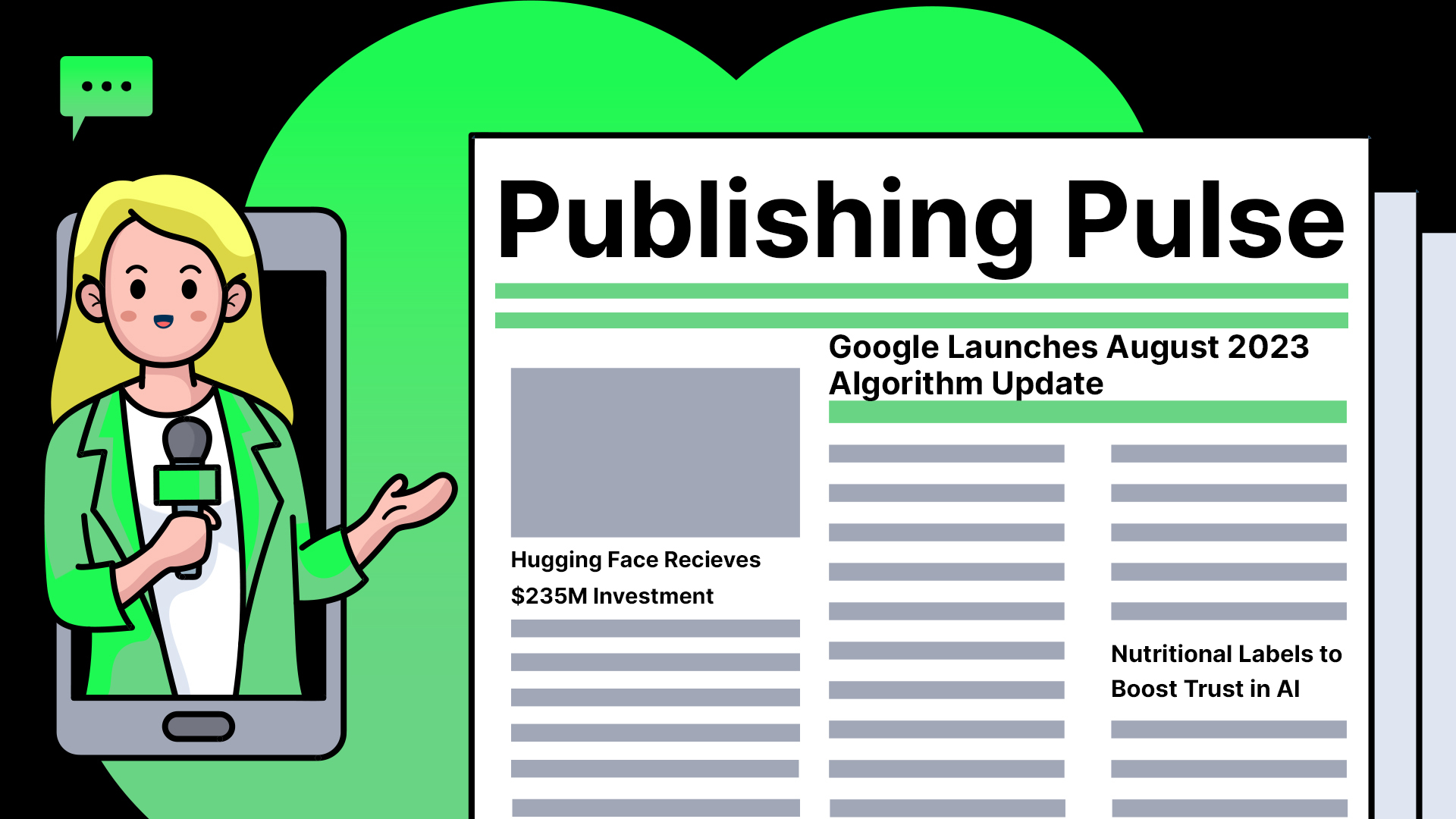Welcome to Publishing Pulse, your weekly source for industry updates in online publishing. Stay informed about the latest trends and breakthroughs in the ad ecosystem, content creation, SEO, AI technology, and monetization.
If you prefer to listen to industry news, you can tune in to The Publisher Lab Podcast. New episodes are released weekly on Thursday.
Preparing for Q4: The Big Picture
In this week’s episode of The Publisher Lab podcast, Trevor Tavel, a Publisher Success Manager at Ezoic, joined the show to prepare publishers for Q4. Trevor is a valuable resource for our listeners; our hosts had an insightful discussion about preparing for Q4, the potential increase in ad rates during the holiday season, and the recent Google algorithm updates.
Ad rates have been unprecedented in the past year and a half, but there are signs of improvement. Trevor advised publishers to use big data analytics to identify specific pages that have lost traffic and make adjustments accordingly. He cautioned against overreacting to algorithm updates and recommended looking at long-term trends and user feedback to understand changes in traffic.
We also discussed the recent Google algorithm updates and how publishers should analyze their traffic data to make informed decisions. Trevor suggested utilizing video content and updating existing content to resonate with the audience during quarter four. Listen to the full episode to learn more about prepping for Q4.
Google August 2023 Core Update
Google has launched its second core algorithm update for the year 2023, with the rollout process expected to span up to two weeks. This update, like previous ones, aims to enhance the usefulness of search results. Though no specific sites are targeted, the update may lead to fluctuations in website rankings, affecting their visibility.
Once the update is fully implemented, Google will update its ranking history page to reflect the changes. For those who experience a negative impact on their website’s ranking, Google advises that this does not necessarily indicate a fundamental issue with the site. Rather than looking for quick fixes, the tech giant provides a list of guiding questions that site owners can use to evaluate and improve their website’s quality.
Monitoring your site’s analytics and performance metrics over the next several weeks is recommended to understand the impact of this core update fully. Google cautions that recovery from any ranking declines might not be immediate; it could take several months, particularly if your site requires substantial improvements.
In addition to these larger core updates, Google also releases minor updates that could positively affect your site’s performance. Overall, the recommendation for businesses and SEO professionals is to remain patient and focus on long-term quality improvements during and after the rollout of the August 2023 core update.
Google Advises on Ranking Updates: Prioritize Overall Strategy Over Specific Signals
In a recent “Search Off the Record” podcast, Google’s Martin Splitt, John Mueller, and Danny Sullivan shared insights on SEO and Google’s ranking systems. They emphasized the need to focus on a holistic strategy rather than individual ranking factors. Authenticity in content creation was highlighted, encouraging SEOs to target real audiences and address their specific needs. The team also noted that Google plans to share more information to help webmasters and SEOs navigate its complex ranking systems.
In this week’s episode of The Publisher Lab, we discussed this news and the importance of creating content that meets Google’s criteria for expertise, experience, authority, and trustworthiness (E-A-T). Publishers should consider their niche, expertise, and authority when creating content.
The Publisher Lab also touched on the impact of AI on content creation and the importance of providing unique and valuable content to engage audiences. Trevor advised publishers to consider incorporating video content alongside written content to cater to different audience preferences.
Major U.S. Tech Firms Confront Fresh EU Regulations
As reported this week by CNN, the EU’s Digital Services Act (DSA) will impose new regulations on major tech firms like Amazon, Apple, Google, and others, affecting areas such as social media moderation and targeted advertising. The law tackles issues like misinformation and illegal products, requiring companies with over 45 million EU users to offer reporting mechanisms and ban targeted ads for children, among other obligations. It mandates transparent advertising and risk assessments by very large platforms, with potential fines of up to 6% of global annual revenue for violations. Tech companies are actively preparing for compliance, and the DSA is expected to influence global tech regulations.
To comply with the DSA, Google is increasing transparency in targeted ads and platform operations for its 45 million-plus EU users. Non-compliance could lead to fines up to 6% of global annual revenue.
Google’s compliance measures include broadening its Ads Transparency Center, offering enhanced data insights for marketers, and launching a new Transparency Center that includes policy, reporting, and content moderation details. The company is also producing risk assessments for EU regulators.
This week in AI: Hugging Face receives $235M investment, AI content labels, & more
Salesforce spearheaded a $235 million funding round for Hugging Face, an open-source AI collaboration platform. Tech giants such as Google, Amazon, and Nvidia also participated. Founded in 2016, Hugging Face hosts AI models from major companies like Google and Amazon. The move aligns with Salesforce’s active investment in AI, including doubling its generative AI fund to $500 million and investing in Cohere. The trend reflects big tech’s interest in AI startups as a cost-effective avenue for advancing AI development and collaboration.
In parallel news, Search Engine Land shares that a significant 85.1% of marketers employ AI for content creation. This trend spurs debates about the need for disclosure labels, signaling that AI is behind the content. Google, however, prioritizes content quality and user engagement over the source of the content when ranking.
Though labeling isn’t mandatory, human oversight remains essential to meet Google’s standards and fact-check content. The landscape of AI disclosure policies may evolve, particularly to counter misinformation on social media. The need for AI labels largely hinges on the quality and context of the content.



